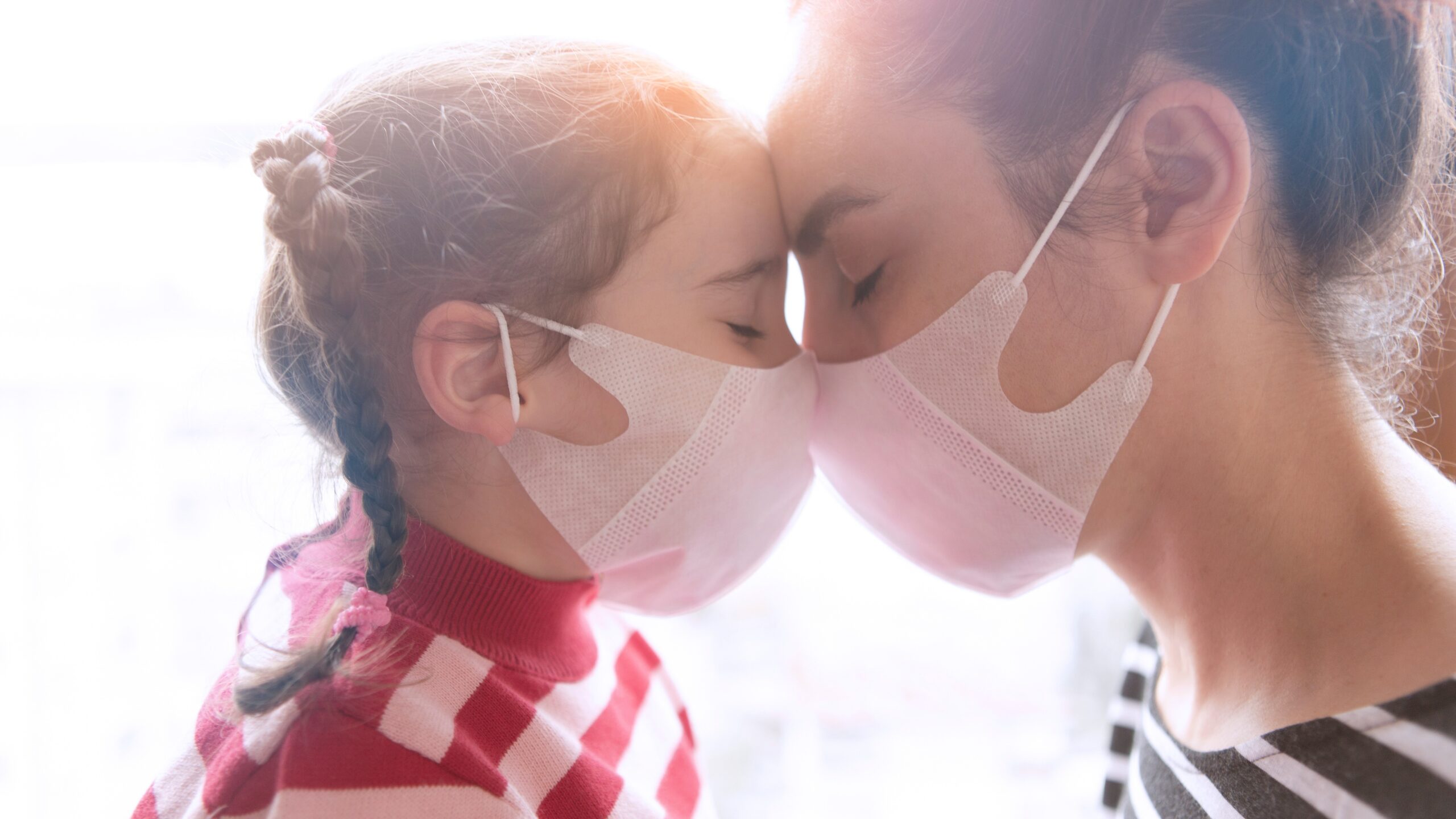
I avoided getting COVID until this summer, and when I tested positive, I knew my kids would be OK with my husband while I quarantined in the bedroom and caught up on the 90 episodes of my soap opera I was behind on. But then my husband and son tested positive. My daughter didn’t test positive until later. My quarantine turned into a quandary I hadn’t been faced with … maybe ever. How do you take care of your kids when you’re sick — and often, like in COVID cases, can’t have outside help?
My husband and I took turns resting and doing the bare minimum. Fortunately, our kids didn’t get fevers, so they were able to play and pretty much do whatever they wanted. My mom ran errands as needed and left items for us outside.
I asked other moms and health care experts for their tips on how you can take care of your kids when you’re sick.
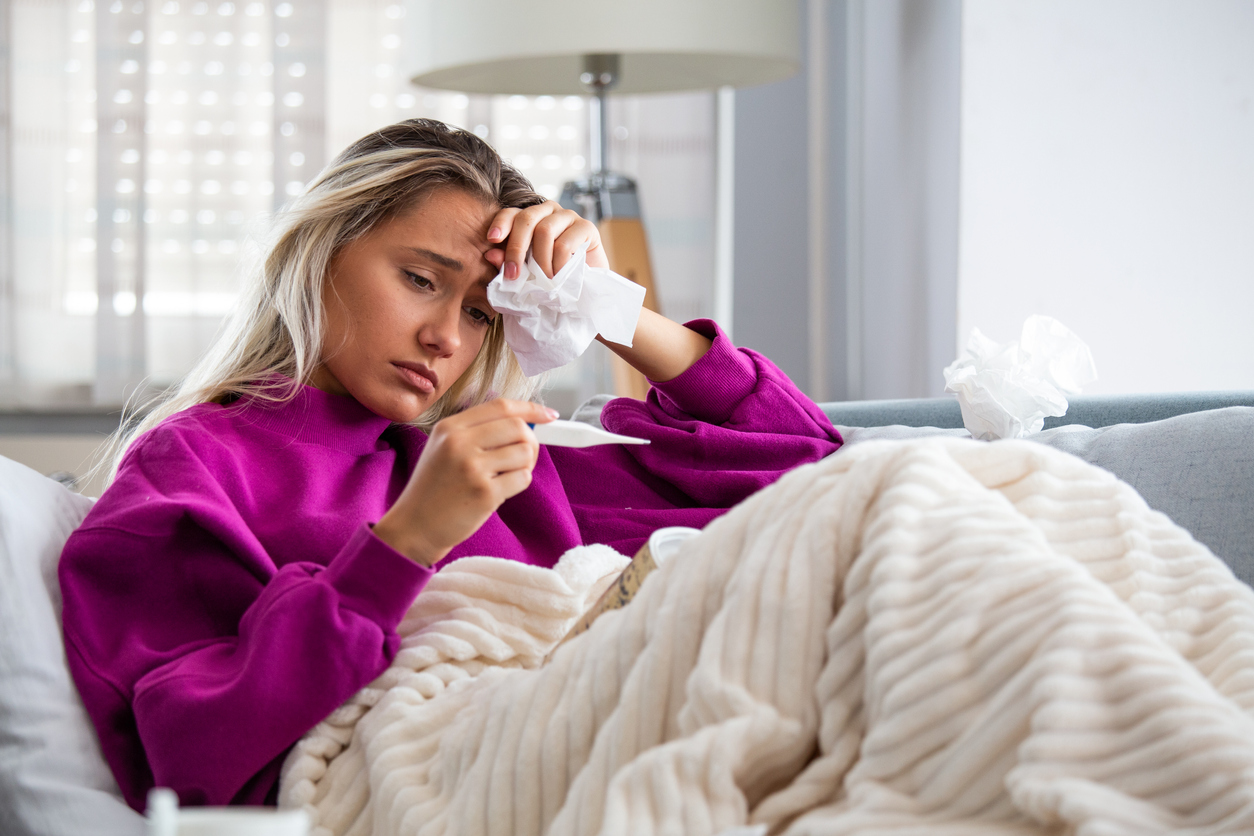
Molly Hutto, DACM, LAc, shares, “As a single parent, it's particularly hard when I fall ill, because there is nobody else to step in and care for my son. Before COVID, I would reach out to friends and family to hang out with my little one, but now that the risk is too high for that, I let him watch TV more than normal, and I'll also have him grab toys to play with beside me, like Legos or Magna-Tiles. We always have a lot of snacks on hand, and I try to keep fruit and sliced veggies available at all times, so I encourage him to be independent and get himself food as he needs it, and I'll order takeout for bigger meals, which is a big treat for him since we don't do a ton of that in general. As much as I like to care for my son and be hands-on with everything he needs, these are perfect opportunities to demonstrate the importance of his independence and to let him shine.”
Lauren Tingley, a mother of two, elementary school teacher, certified Simplicity Parenting discipline and guidance coach, and creator of the parenting lifestyle website Simply Well Balanced, tells LittleThings, “I had hyperemesis gravidarum with both pregnancies, which meant that I was extremely sick while pregnant and trying to care for my 2-year-old for nine months while I could barely get off the couch. As a parent, it is natural to want to put your children first. However, when you are sick, it is important to remember that you need to take care of yourself first in order to be able to take care of them. Get plenty of rest, eat healthy meals, and take this time to recover. By taking care of yourself, you will be better equipped to handle taking care of your children.”
She shared several tips for parenting when you're sick:
Let go of expectations.
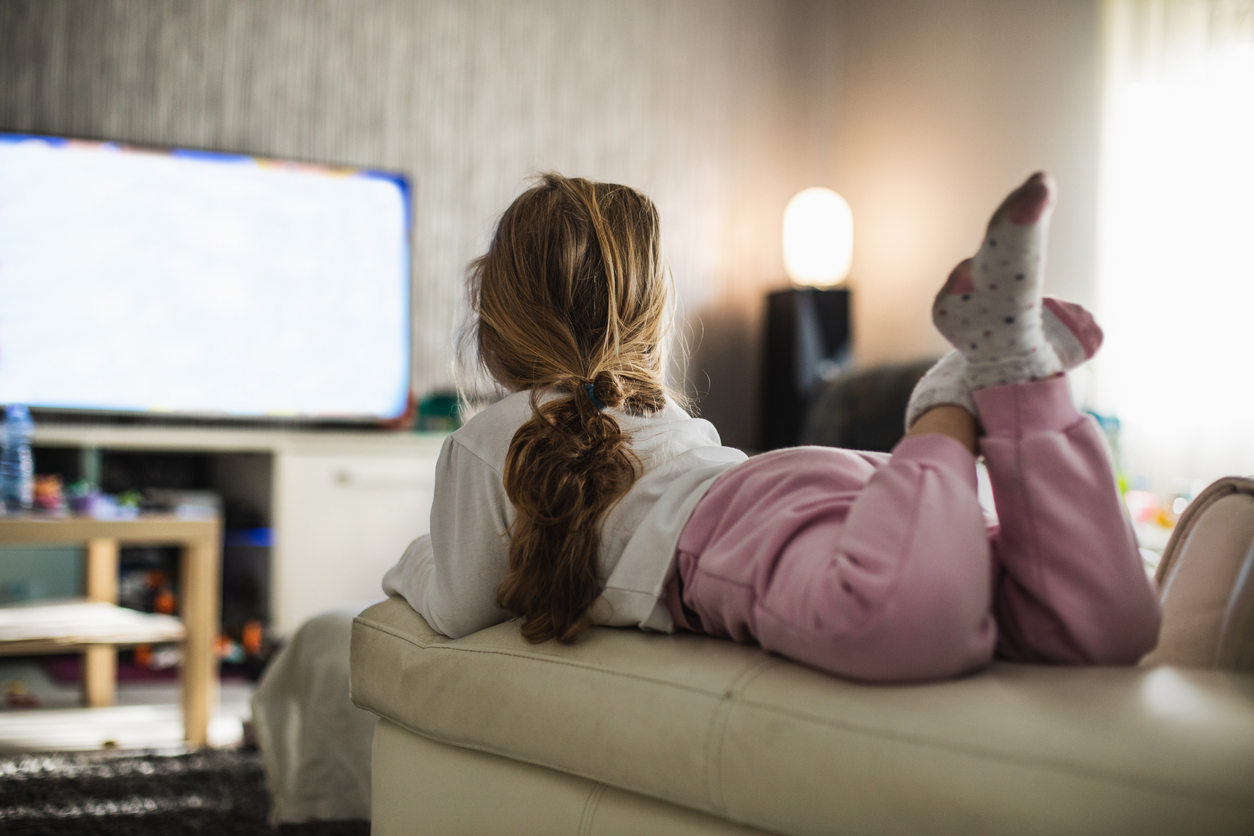
“Now is not the time to be worried about how much TV they are watching or how many gummy snacks they've eaten,” Tingley says. “As long as they are safe and you are able to get some rest so you can recover as soon as possible, that is all that matters. A few hours or days won't have a lasting impact on their health or happiness.”
Enlist help.

“If you can, ask friends or family members to come over and help out with the kids while you rest,” Tingley adds. “This will take some of the pressure off of you and allow you to focus on getting better.”
Follow a schedule.

“If your kids are old enough, it can be helpful to create a daily routine,” she explains. “This way, they know what to expect and when. Try to stick to regular mealtimes, bedtimes, and activities as much as possible. This will help bring some sense of normalcy during an otherwise chaotic time. Since you never know when you will be sick, this is a great thing to create ahead of time and have in your back pocket when it's needed.”
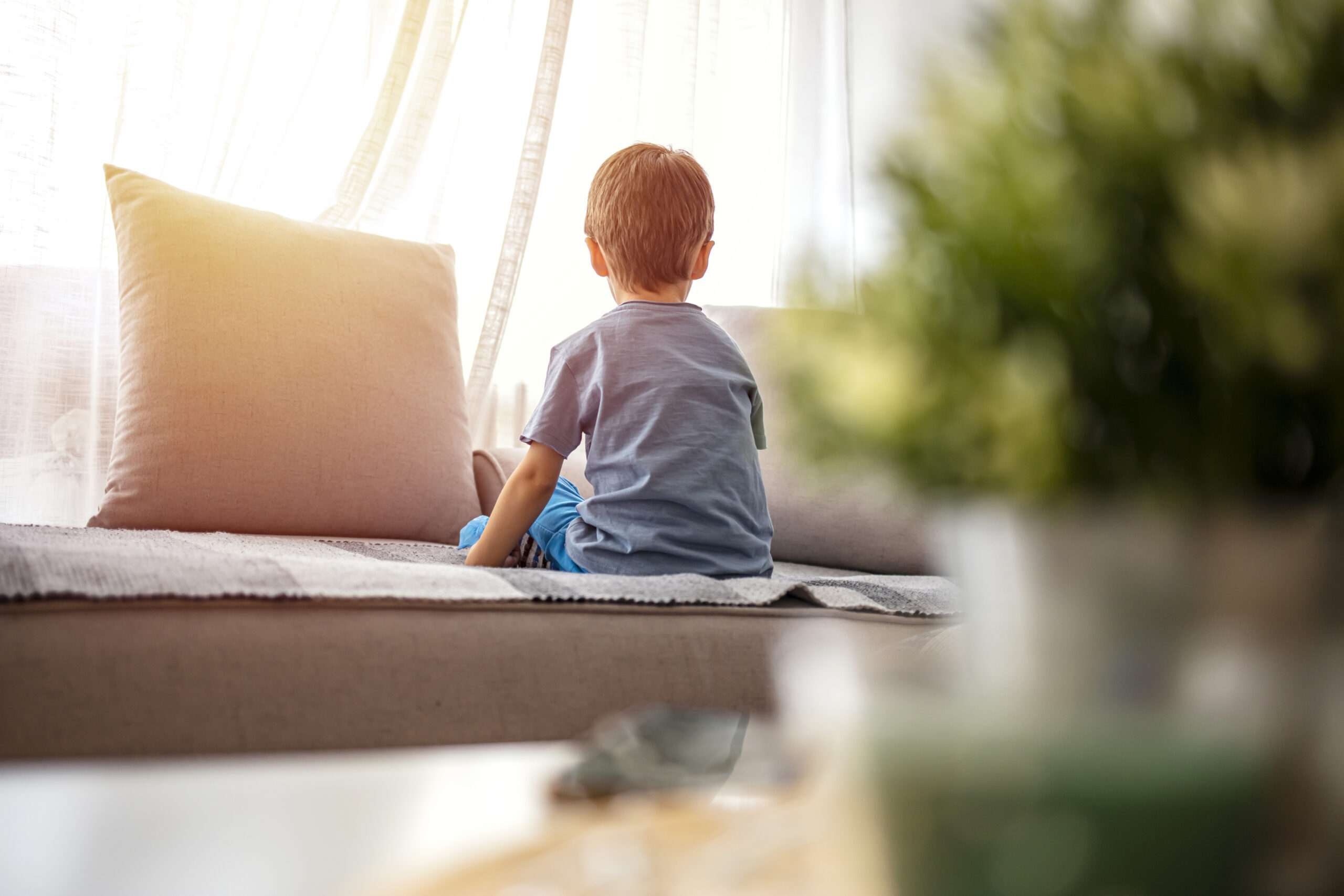
Blogger Lauren Levy uses a fun activity for drawing feelings. “All while remaining glued to the couch, I draw a bunch of circles and give each one a different emoji-like face,” she says. “My toddler helps color each one a different color. Then I cut them out so he can play with them. He lines them all up and arranges them on the cushions and coffee table. He even makes up little scenarios about ‘sad’ needing a hug from ‘happy.’ It’s incredible how endlessly entertaining a dozen paper circles can be. Then, to extend his playtime, I turn on a YouTube video about feelings. He loves to match up the ‘feelings’ on the screen with the ones we made.”
Catherine Wilde, author, founder of Soul Care Mom, and yoga and meditation teacher, says, “In my home we call such sick days 'home campouts.' We drag everything we need into one room, set up a sheet over chairs to act as the tent, and have a special bag of toys, arts and crafts, etc., that only come out on such occasions. I regularly add to this so there is always something new to discover. Meals are basic, eaten on little plates or bowls in the tent, everyone stays in PJs for the day, extra screen time is allowed, and naps are actively encouraged.”
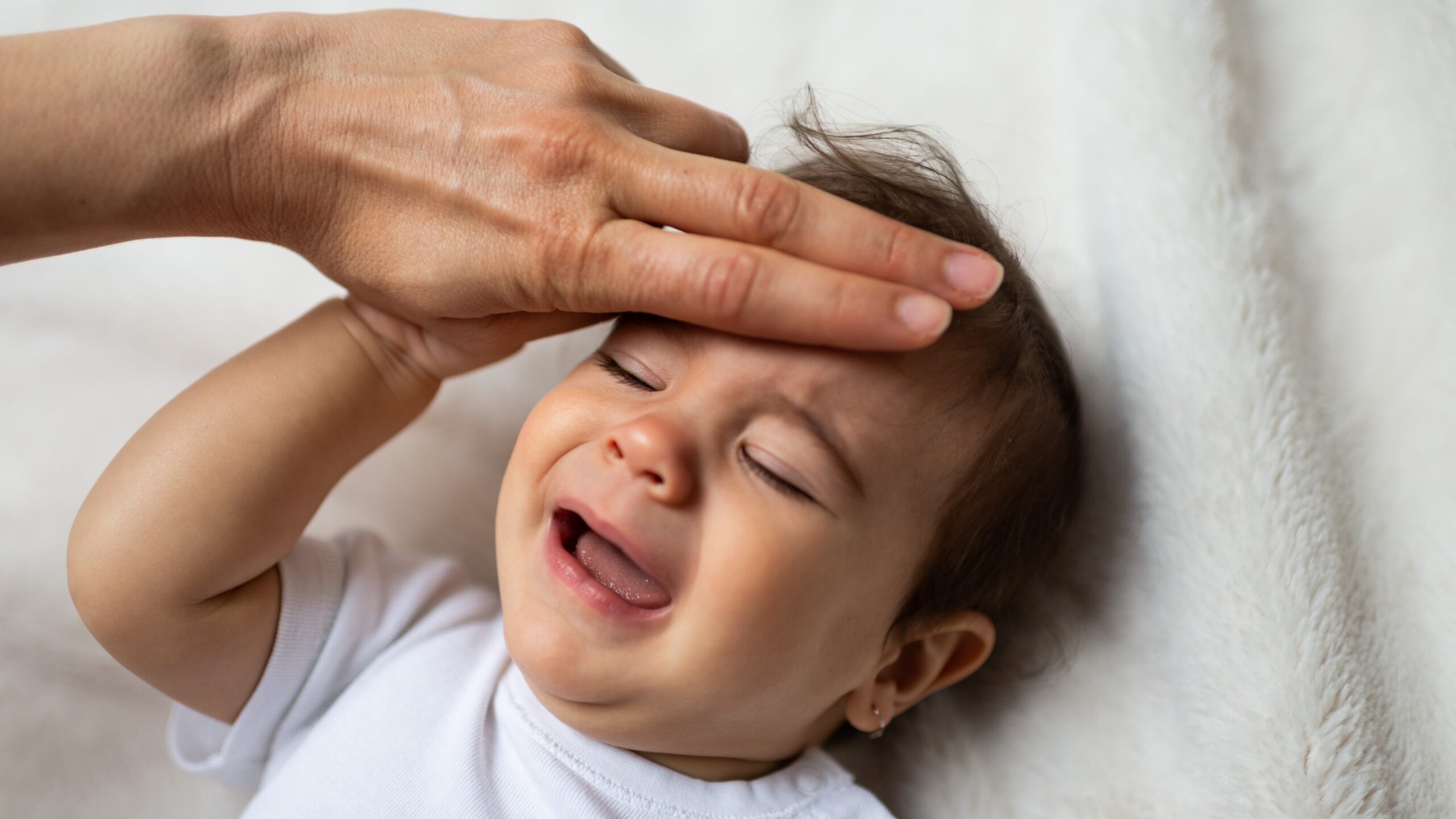
Daniela Mazal of @mombodchronicle and CEO/founder of Old School Pilates, tells LittleThings, “Having a 15-month-old, he has pretty much been sick every few weeks since he started hanging with other kiddos. Therefore I have also been sick far more than I am used to. I bathe daily. In addition to literally clearing the yuck, studies have shown that warm water activates the parasympathetic nervous system, which calms us down and relieves stress. I sleep when the baby sleeps, gargle with warm salt water — which can raise serotonin levels in the blood, relieving headaches and migraines — and get outside, even for a moment, for vitamin D.”
When you’re facing more serious issues than a cold or flu, you might need to add to your approach.
Lorena Junco Margain had to face this situation when she went through a health crisis. “Thirteen years ago, I began experiencing symptoms that I later learned were due to a tumor on my right adrenal gland. The symptoms themselves, including dizziness and lethargy, were a health crisis. But the crisis amplified when the surgeon treating me made a grave mistake: Instead of removing my right adrenal gland, he removed the left adrenal gland. This error left me with a lifetime of medical issues I must confront every single day. Although ultimately a second surgery removing part of my remaining adrenal gland saved my life, I now live with only one half of one adrenal gland. There are days and often weeks where I am excessively fatigued. I am often plagued with extreme fatigue, pain, depression, and confusion.”
She continues, “My children were young when this journey began: My youngest — my son — was an infant, and my daughters were toddlers. My ongoing health issues have been part of their lives for as long as they can remember.”
Here’s what she has learned over the years about living with them, supporting them, and loving them against this backdrop:
Share your health struggles with them in an age-appropriate way.
“It’s natural to want to shield children from news that’s frightening to you, but they’ll sense it if you’re holding back important information,” Margain says. “Kids pick up on the most surprising things! And knowing just a little but not enough can lead them to imagine the worst possible scenarios. Instead, explain what’s happening in a way that matches their age and ability to understand. Stick to the big picture, especially for younger kids — for example, ‘Mommy is sick but the doctors are helping her’ — and add key details for older kids, such as the nature of the illness.”
Lean on friends and family.
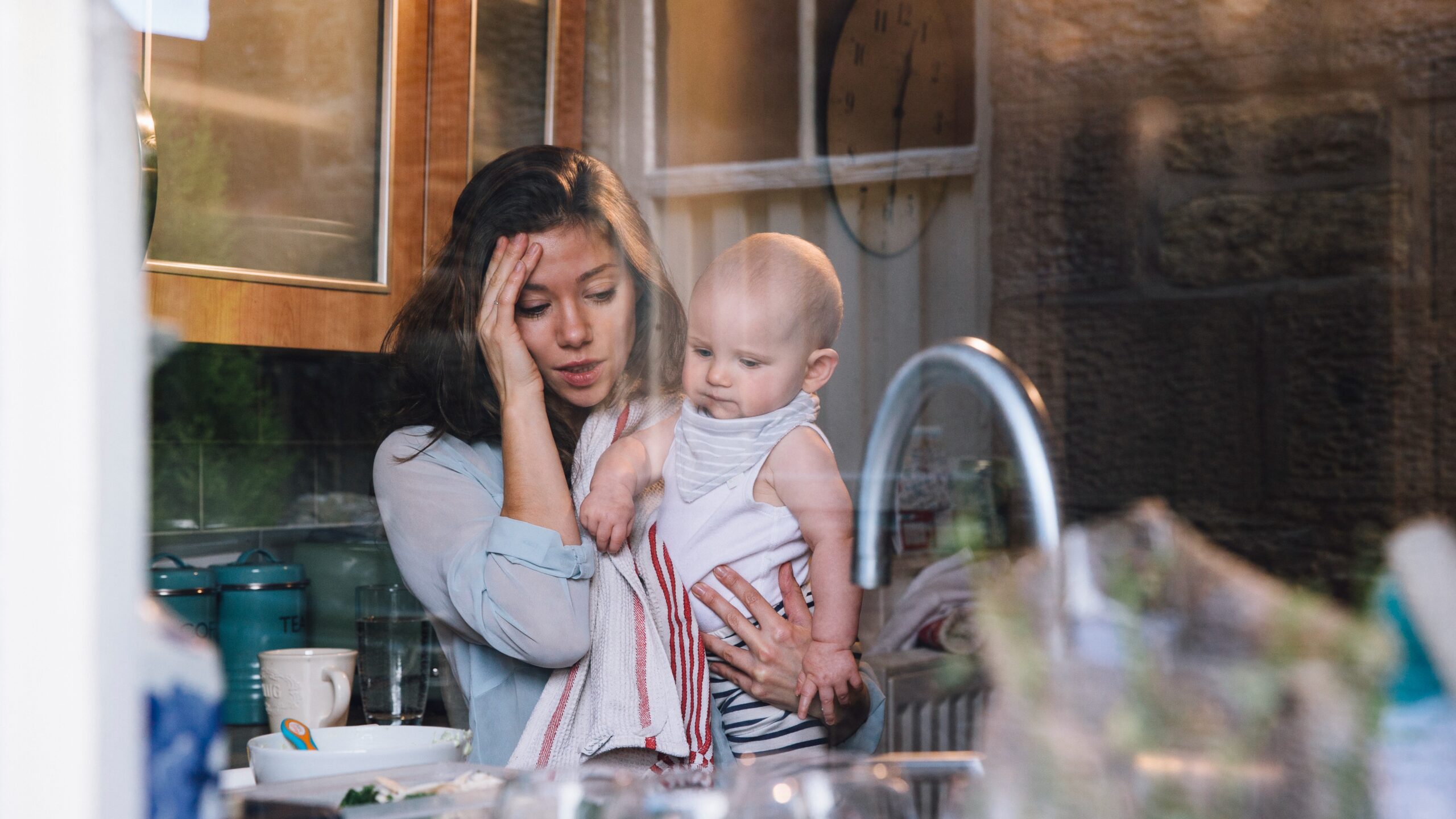
“When you or your spouse are at the center of the crisis and can barely keep it together, you may not be the right ones to speak with or care for your children — at least not all the time,” Margain explains. “That’s where friends and family come in. Let them step in and help by taking the children, speaking with them about the situation in terms you’ve agreed on in advance and demonstrating to the kids that they’re loved and supported even if mom and dad are preoccupied. I’ll never forget the times my own kids came skipping home after a playdate or a movie and am forever grateful to the people who stepped in and organized these outings. After all, kids are kids — and most often they just need to be kept safe and happy. They’re much better off distracted and entertained than sitting by your bed worried and afraid.”
Let them glimpse pain but not be overwhelmed by it.
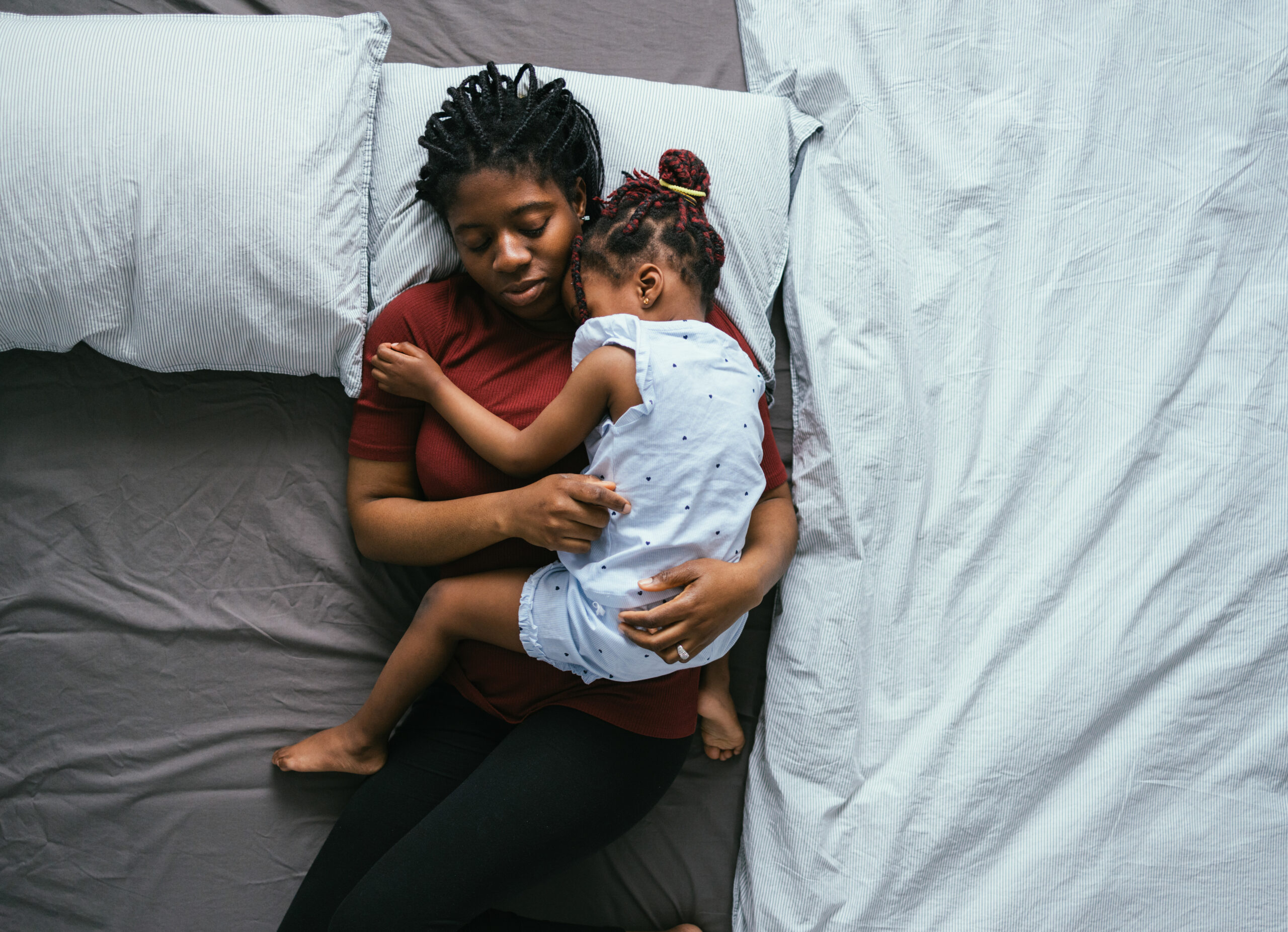
“It's always tempting to remove kids altogether from painful situations, but it's also healthy for them to experience a level of pain that they can tolerate and process,” Margain adds. “Pain and hardships are an important part of life. Pick some times when they can be with you and see your discomfort. Talk to them about how you feel, and answer their questions. But make sure there are plenty of other times when they are busy focusing on their usual activities and are not overwhelmed by the more difficult moments.”
Give them opportunities to help.
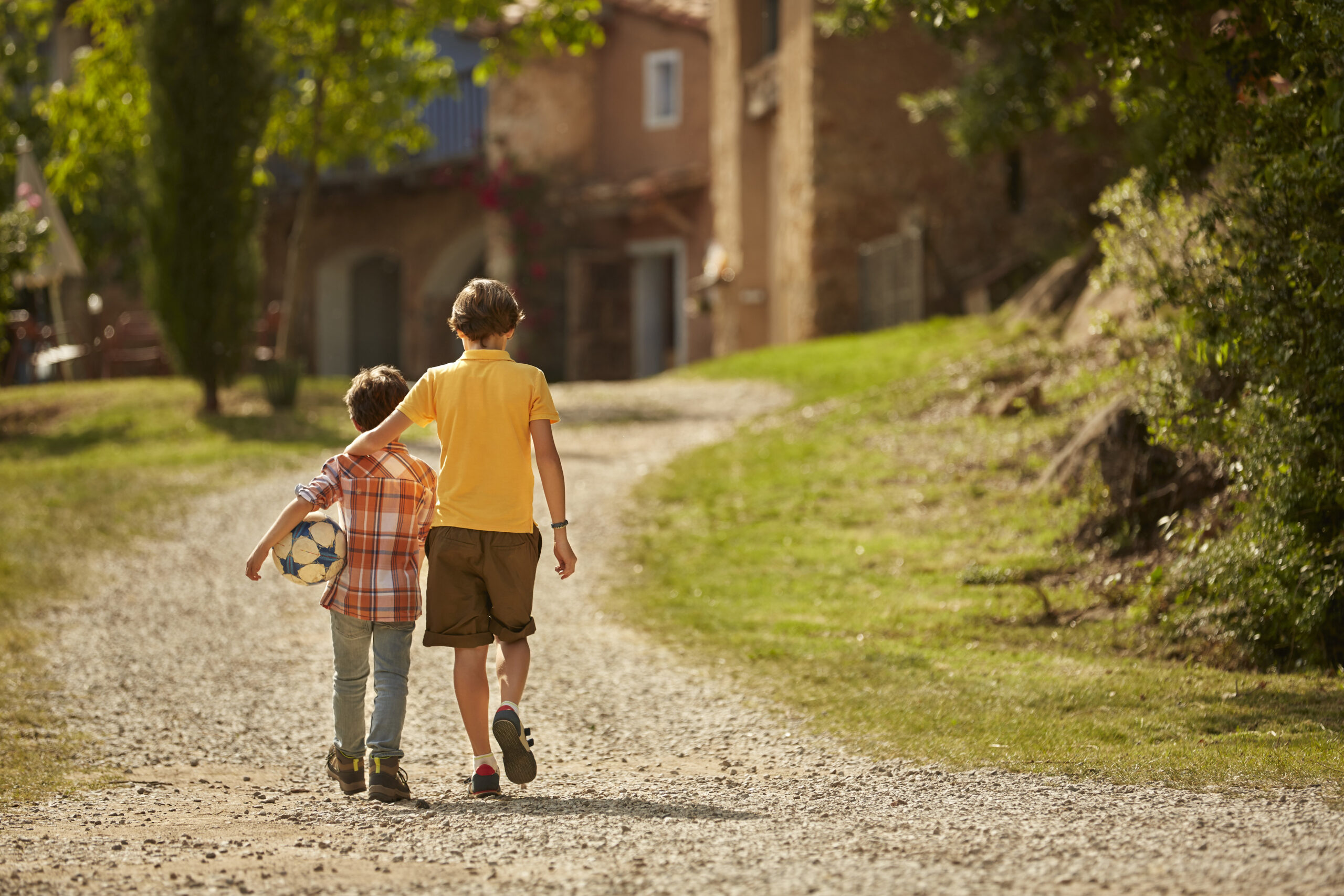
“Kids feel empowered and uplifted when they’re involved and can make a contribution — so let them!” she says. “Maybe they’d like to hold a warm compress to your forehead or take your temperature. How about bringing you a glass of water or brushing your hair? The possibilities are endless. Be creative, and the joy will overpower the angst.”
Remember: Life goes on.

“I still clearly remember one evening shortly after I learned about the surgeon’s error,” Margain recalls. “My husband, Eduardo, and I were having dinner together at home with the kids. I was overwhelmed. Eduardo and I were both still reeling with shock. Yet, when I got up from the table to take a phone call from my doctor, I heard Eduardo telling the kids to eat their veggies and not just the cheese. In other words: Life goes on. Their routine continued as always, as if nothing had changed.”
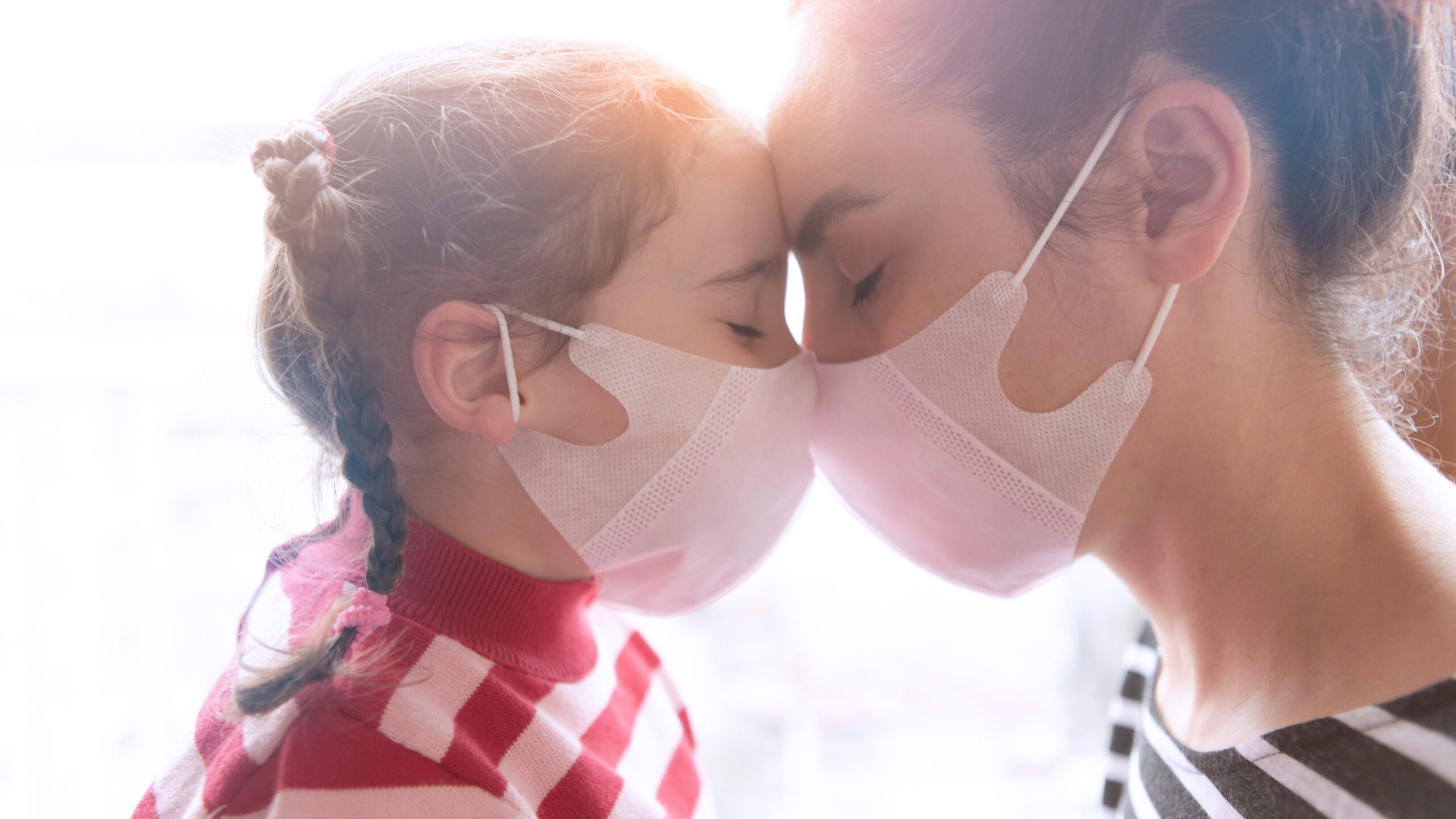
She sums up, “In many ways, nothing had changed — and that’s the most important lesson I learned. Our children were and will always be the same happy, energetic young individuals they were from the moment they came into this world. Our job as parents is to honor that with love and honesty, and to do what we can in both sickness and health to keep them grounded in their routines so they feel safe and stable and can flourish.”




